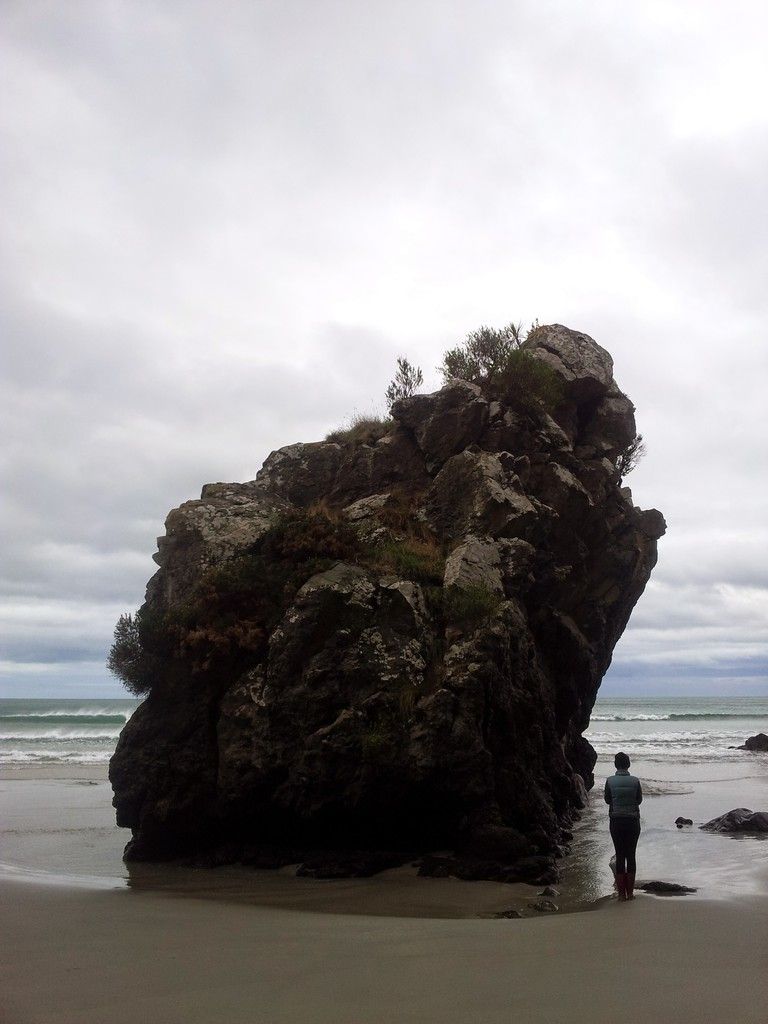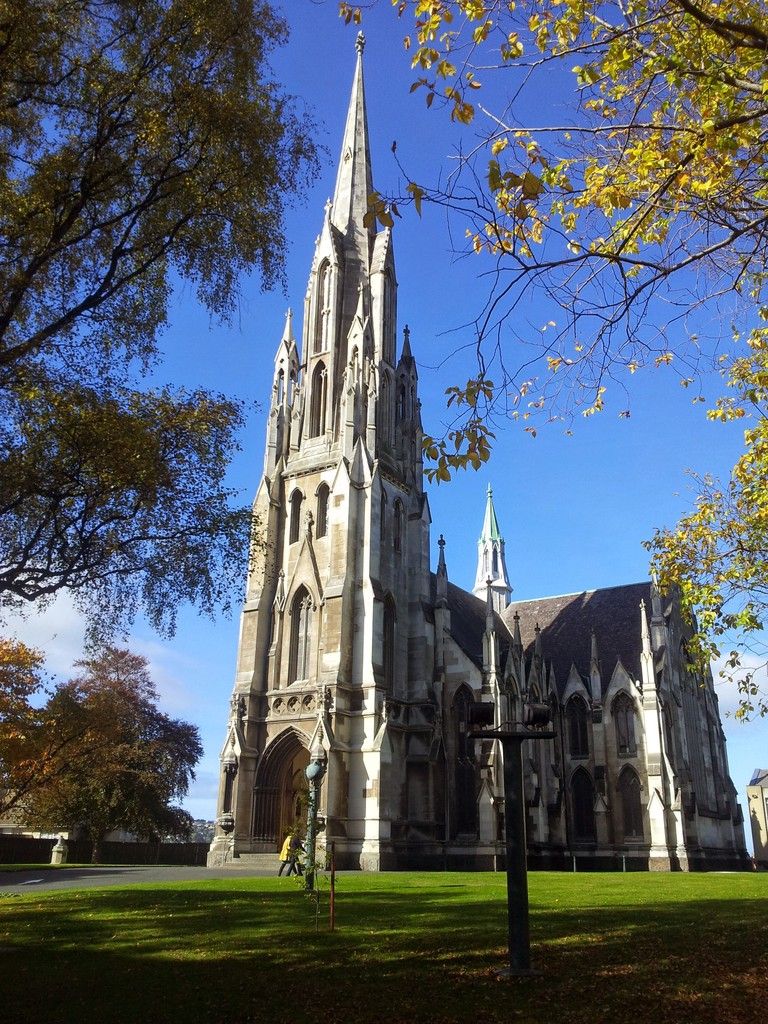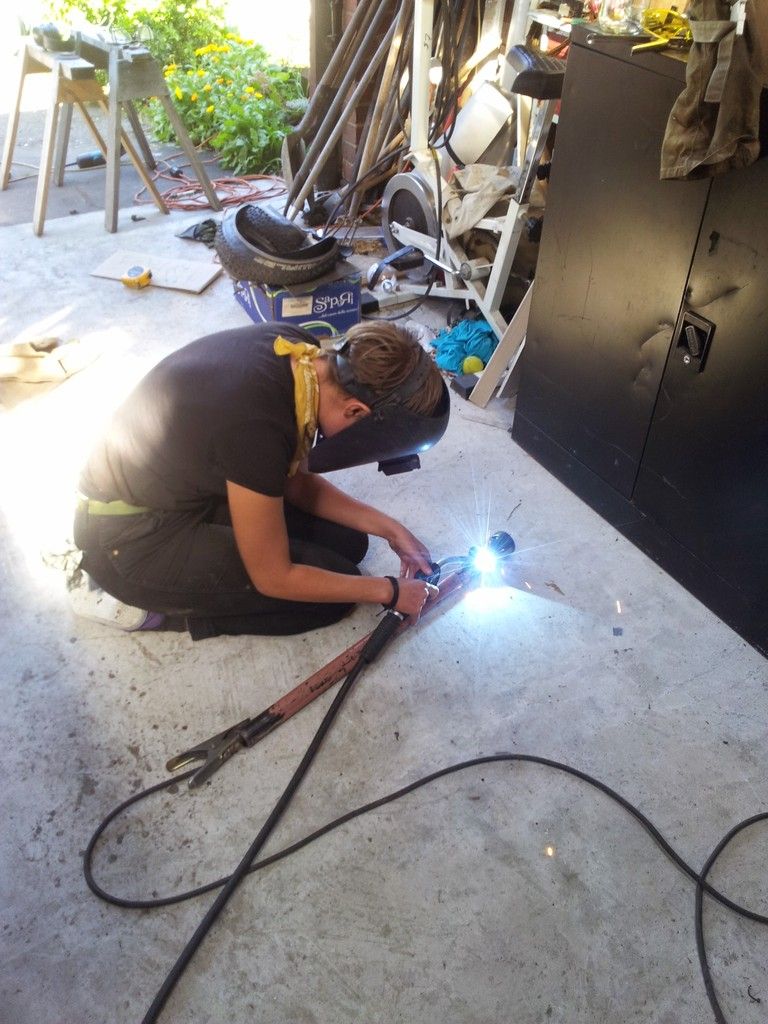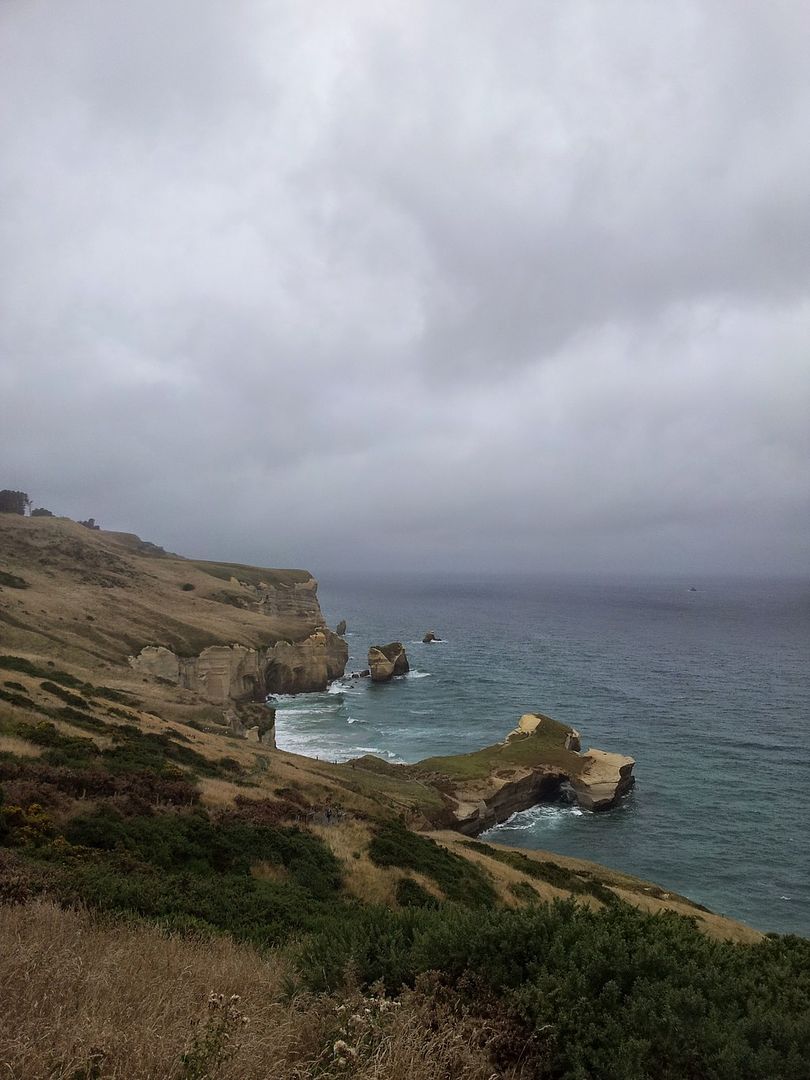A Literary Cities piece on Dunedin, by Phoebe Paterson de Heer.
I didn’t mean to live in Dunedin. My partner, Ryan and I really were just passing through. It was one stop on what was going to be a long bike tour, with just another offer of a stranger’s place to stay. But as days turned into weeks and our panniers sat unpacked in our host’s garage, the offer was remade. We could live here, in this drafty weatherboard house on top of a steep hill, in this grey Southern city where Pacific gulls soared over cobbled streets and you could almost taste Antarctica.

Ryan had fallen quickly in love with the place and with our new friends. I took a little more convincing. “You can write in a world City of Literature,” he entreated. I imagined it; sailing down High St, riding the brakes with my laptop on my back. Ducking between towering trees to arrive at Dunedin’s impressive four-storey public library, making my office amidst the hungover students, the writerly types in suede, the hippies and travellers in from the cold.
I imagined finding inspiration on Otago’s ocean cliffs, the windswept, sheep-dotted hillsides with names like Lovers Leap, where you had to pull yourself back to prevent from lurching with abandon into infinity. I could write about Tunnel Beach, its sandstone arches worn by the whirling sea, its only access a hand-carved tunnel that had drowned a young girl in a rising tide. I could write about the albatross and the fur seal.
I imagined doing all this, and agreed. We could live in Dunedin, City of Literature.

Through all this, I was suppressing thoughts of the persistent pain that had followed me for months. It was an intermittent wrenching of my insides that winded me, brought tears to my eyes, had me clutching my abdomen and rocking, curled up on the floor in the middle of the night. Doctors in Australia, before we set out on our adventure, had told me nothing was wrong. I was given hormone pills and antidepressants. And because Nothing Was Wrong, we left, on an indefinite trip. I’d just have to be fine.
But I wasn’t fine. I thought I was going mad. I had pain that was bewildering, and anguish I couldn’t explain. In that weatherboard house I cowered beneath moth-eaten wool blankets and cried for hours each day, choking on my own sobs and snot, panicking from despair. In time I became too anxious and weary to ride my bike. After a few weeks I found a job working from home, and I spent the daylight hours doing yoga and cooking stews, the darkness reading books by the fire. In the end, all the writing I did was scrawled pages in my journals. But still the city left an indelible mark on me.

I learned the Māori history of the area, the culture’s pulsing presence. Aotearoa’s stories mirrored what I knew of colonialist narratives from Australia, with invasion and massacre and disease – but the stories were different, too. And importantly, the prevailing attitude was different. One day, I attended a lunchtime protest in one of Dunedin’s city parks. It was against Australia’s proposed forced closure of remote Aboriginal communities. I felt disgraced, and angry, and far away. Even more so as the speakers, both Māori and Pākehā (white New Zealander), greeted the crowd in Māori. They spoke of sovereignty and solidarity. As the whole throng of protesters joined in singing a Māori song, tears caught, once more, in the back of my throat.
Dunedin taught me other things, even as I struggled to make a home there. Amongst our humbly knowledgeable Kiwi friends, skills I’d long been chasing just presented themselves as doable. When Ryan and I didn’t have the money to spend on a bike rack for the car we’d bought, my housemate taught me to weld one from bits of scrap metal. I was mesmerised, behind the darkened screen of my mask, by the shifting orb of molten metal, the joining of two parts. Another day he took us to a mate’s farm and we learned to butcher a sheep. I gingerly slid my fist between its still-warm body and its woolly tufted skin, layers of sinew teased apart by my thumb.

And I learned to listen to myself; to know when giving up is really what is needed. There’d been too many nights sobbing pain-stricken in our bedroom, flinging sodden tissues across the floor and wishing hard for something to be different, for things to be easier. I eventually realised that what I wished for was to be home. I needed a diagnosis, a real one; I needed stability, and to be warm. So we left.
In the end, we were right to do so. Several weeks and many doctor’s appointments later, I emerged from surgery, stiff and groggy. Tiny cuts had been made in my belly, and lesions on my insides scraped away. My pain had a name: endometriosis.
My gynaecologist visited me hours later while I was propped up and trying to doze. She told me the surgery she’d done was “extremely worthwhile”, and that if left any longer, the disease would have become much harder to manage. She showed me fish-eye photos of my uterus and ovaries, covered in dark splotches. When she left I cried once more, fragile but released.
It was a while before I thought much about Dunedin again. It had been too easy to characterise the months I spent there as a dark time, everything getting worse before it could get better. But there was a feeling that stuck with me, of an undeniable beauty to the melancholy. I could now acknowledge the important friendships, the living hum of the city’s wild places, the new skills I’d gained in amongst it all. The stories.

Dunedin’s so far south that at certain times you can see Aurora Australis, the Southern Lights. One frosty June night my housemates and I learned of the forecast, so we all piled in to a beat-up hatchback and drove the winding road to the peninsula. It was late, and the sky was ink-black; our headlights barely punctuated the dark. At a lookout high on a hill we stood huddled together and I searched the horizon for the fluorescent swathes of colour that I’d seen in time-lapse photos. But they weren’t there. Instead my gaze settled on a radiating band of sky, just barely lighter than the rest – a slowly shifting muted glow. This was the real Aurora. I stood shivering, rooted to the spot, disappointed and enchanted all at once.
When I think of Dunedin I think of that light. It wasn’t spectacular, or immediately obvious, or even what I’d been expecting; but in its quiet radiance there was wonder, all the same.
This is a Literary Cities piece, part of a series where writers reflect on the places and experiences that have inspired them. To read more like this, click here.
Make sure don't miss out on any of our content by signing up to our weekly newsletter.
Phoebe Paterson de Heer
Phoebe Paterson de Heer is a writer, biologist & bicycle mechanic from Adelaide. She likes writing memoir and learning new skills. She doesn't like endometriosis, but is learning to deal. Her work has appeared in Archer, Scum & Voiceworks.

